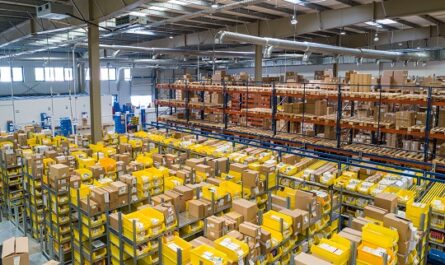In this post, I’ll talk about what Sales and Operation Planning (S&OP) is, why it’s so important, and what happens if you don’t do this particular process.
But before we talk more about this important subject, make sure you’ve joined the scmguide telegram channel, where I talk a lot more about supply chain management.
Now, let’s look more closely.
Table of Contents
What is Sales and Operations Planning? (S&OP)
The first question is, of course, what is Sales and Operation Planning (S&OP)?
Simply put, Sales & Operation Planning is a method, or activity, for making plans for sales and operations. Easy, right?
Then why should sales and operations be tied together? Why can’t each function just figure out its own plans?
You must know that in order for a business to be successful, it needs to do a lot of different things. Even it involves people or businesses outside of your company, like suppliers or 3PL.
Within your own company, people from sales, manufacturing, purchasing, finance, logistics, quality, and marketing will all work together to help your business beat the competition.
Now, think about what would happen if each of these functions made their own plans. Imagine if each function had to make their own assumptions about how they should work.
How will things go?
Chaotic. That’s certain.
Because of this, you need a single number that all functions use as the basis for what they do.
And the only way to come up with that number is through the Sales & Operation Planning process.
What is Sales and Operation Planning output?
What does this Sales & Operation Planning (S&OP) actually do?
S&OP will make a single set of plans for sales and operations.
What’s the point of this number?

This number can be used to make plans for buying raw materials, making products, delivering products, and other things.
You can also use this number to plan your production, warehouse, logistics, third-party logistics (3PL), and even your suppliers production capacity.
Why is it important to plan for sales and operations?
S&OP is important for the reasons below.
Align your sales and operations plan
Yes, S&OP is important because it helps make sure that plans for sales and operations are in sync.
Sales and Operations are obviously part of the same company.
And, of course, that’s why the plans for these two major functions must be in sync, because one function will support the other, and vice versa.
S&OP is important because it brings together the organization’s two most major functions.
Make sure there are enough resources
The plan that has been agreed upon must, of course, be one that can be carried out.
And to be able to carry out the plan, you need to know how well each function in your organization, like production, storage, or suppliers, works.
Make sure there are enough raw materials
How could you make a finished product if you didn’t have any raw materials?
So, one of the things that will be made sure of in this S&OP process is that raw materials are available.
Is the amount of stock you have still enough? Or do you still need to send the supplier a PO? When you open a PO, how long will it take for the raw materials to get to you?
These are some of the questions that Sales & Operation Planning will try to answer.
Making sure there’s enough space in your warehouse
Now that you know your production capacity is available, you can move on. The same goes for the raw materials that are available.
Then, can your plan be put into action right away?
Wait a minute. If it turns out that sales and production plans are going to go up, will that affect whether or not your stock level goes up?

If so, how big is your storage space? Can it hold all of the extra stock?
Not only should you check the space in your warehouse for finished goods, but you should also check the space in your warehouse for raw materials.
Your warehouse might not be big enough to hold all of the extra finished goods and raw materials. You might have to rent a new warehouse.
You might also like:
How to Implement Daily Closing, an Important Supply Chain Activity
Making sure logistics can handle it
Are you sure that you have enough vehicles to get your goods to customers?
Don’t lose the chance to make a sale because your fleet isn’t sufficient enough to meet your customers’ needs.
S&OP can be a place for your logistics team to make sure of this.
Ensure financial resources are available
It costs money to pay for overtime, buy raw materials, and pay for other business needs.
Have you saved enough money to pay for everything? Or, maybe you’ve spent all your money on stock and don’t have enough cash to run your business.
Or do you need to save money here and there to make your plan happen?
In the S&OP process, the Finance and Accounting functions will be able to give a big-picture view of this.
Overtime planning
Sometimes, you can’t make enough product during regular business hours. You need to put in extra hours.
How many hours? That’s the question. When?
Do you have to work extra hours every day? Or, need to work on weekends?
All of these things can be talked about at the Sales and Operation Planning meeting.
What will happen if Sales & Operation Planning is not run?
What would happen if you didn’t do S&OP, even though it’s important for so many reasons?
Let’s take a look at what will happen if you don’t do this process.
Stock that doesn’t meet sales needs
Because production and sales have different plans, what is made doesn’t always match what sales needs.
Well, another effect is that the stock is likely to stop moving, becoming “dead stock.” If it moves at all, it moves very slowly.
Even more so if your product has an expiry date. If your product can no longer be sold, you will be taking a risk.
At the end, you have to throw it away, of course. Or, selling it at a discount just to avoid losing more money without making any profit.
Overload warehouse
Stock that doesn’t leave your warehouse will make it impossible to store new stock because there won’t be anywhere to put it.
You have no choice but to build more warehouses, or pay the additional rent. And this, of course, adds to the cost of running your business.

This happens in both the finished product warehouse and the raw material warehouse because you don’t use everything you buy for your production.
What if you insist on keeping the stock in the warehouse that’s already there?
Your operations will be very hard to run because you don’t have enough space. So, your safety at work is in danger.
Not to mention that your warehouse staff might make mistakes because they have to work in places that aren’t ideal.
Not meeting sales goals
You can’t meet your sales plan because the stock you have isn’t the same as what the sales department needs.
Or, you don’t have enough raw materials to meet the needs of the production department. Because of this, you can’t make the thing you need.
In the end, you can’t meet the sales plan again, of course.
Your competitors will take some of your market share.
Because the products you have don’t match what sales need, or what your customers need, the number of people who can buy them on the market will automatically go down.
This is something that your competitors will not waste, of course.
They will move quickly to take your market share.
And as time goes on, you will fall further and further behind. You’ll just watch from the outside of the arena.
Not enough production, warehouse space, or suppliers capacity
Since you don’t know how many sales and operations your business needs, you have no idea what to do to get ready.
It’s possible that you won’t be ready when your market share grows.
Your ability to make things isn’t up to par. The same goes for warehouse capacity and supplier capacity.
To make more capacity? Not that quickly. Takes time. You might already be late by the time your capacity is ready.
Lost direction
Without a good Sales & Operation Planning (S&OP), no one knows where your business is going.
Is this month going to be better than the last one?
Or, is it worse this year than it was last year?

You won’t know what to do with your business if you don’t know where it’s going.
You are like stumbling around in the dark.
And how to do a good Sales & Operation Planning is another important question.
In my next post, I’ll talk about this question.
Conclusion
The Sales and Operations Planning (S&OP) process is very important. You can’t just ignore this.
When your sales and operations plans are in sync, your business will run better and more efficiently. Without wasting much or have very little capacity.
You will meet your sales goals, have enough capacity in your production, warehouse, and with your suppliers, without having too much, and your business will continue to grow.
Don’t forget that you will also win the competition.
How does your experience with Sales & Operation Planning (S&OP) work? Please add your thoughts in the comments section below.
If you think this article is helpful, please share it with your coworkers so they can get the same benefit. Also, join the scmguide telegram channel, where I share a lot more. You can use any of the articles on this blog for whatever you want, even if it’s for business. You don’t have to give credit. I hope that helps!
 by
by 
